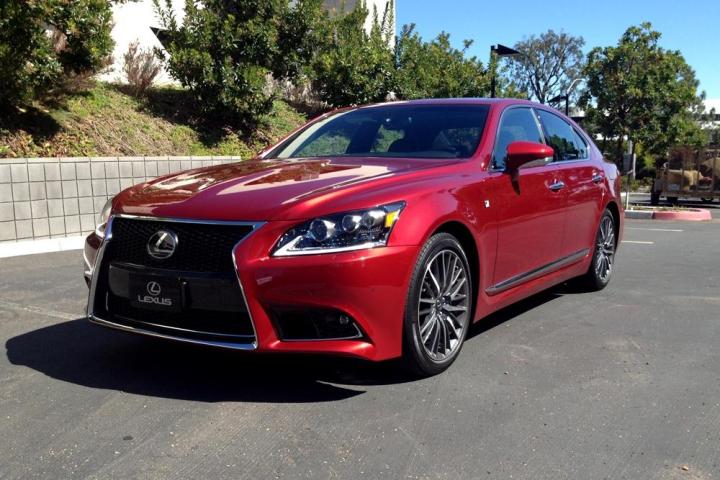
Among the new alternative energy models, the Lexus LS will carry the torch in 2018, according to Automotive News. The fuel-cell variant will follow the introduction of the next generation LS later this year at the Tokyo Motor Show, coinciding with the LS sedan’s 25th birthday.
When the new LS is revealed, it will feature a tweaked V8 engine with 465 horsepower. When the fuel cell version goes on sale, it will likely slot above the LS 600h hybrid as the range-topper, even if its boasts less power.
The hydrogen fuel cell technology that will also find its way into the next-generation LS sedan will come from the Toyota Mirai concept. In the Mirai, the powertrain featured a range of 300 miles, took just five minutes to fill, emitted no exhaust besides water vapor, and could siphon energy into an owner’s home with the Optional Power Take-Off device. While 153 horsepower was plenty for the Mirai, expect the LS to require a bit more motivation to move the 5,000+ pound luxury sedan.
While Toyota hasn’t made an official announcement about its hydrogen fuel cell plans, also on the table is a fuel cell version of its Japanese-market Crown sedan and Estima minivan.
Finally, a taxi based on the JPN Taxi Concept that debuted at the 2013 Tokyo Motor Show could employ fuel cell energy to replace the Crown Comfort cabs in Japan. Should Toyota’s hydrogen fuel cell technology work well and sell well, we can expect almost all Toyota and Lexus products to gain fuel cell derivatives in the next 10 to 15 years.
Editors' Recommendations
- Lexus did the obvious thing and chopped the top off its flagship LC
- Hyundai cracks off two new land speed records in fuel cell, hybrid cars
- Toyota’s E-volution continues with 2021 Mirai and 2021 RAV4 Plugin
- Toyota uses hydrogen fuel cells to power one of its Japanese factories
- BMW teases hydrogen cars again with fuel cell X5 concept


